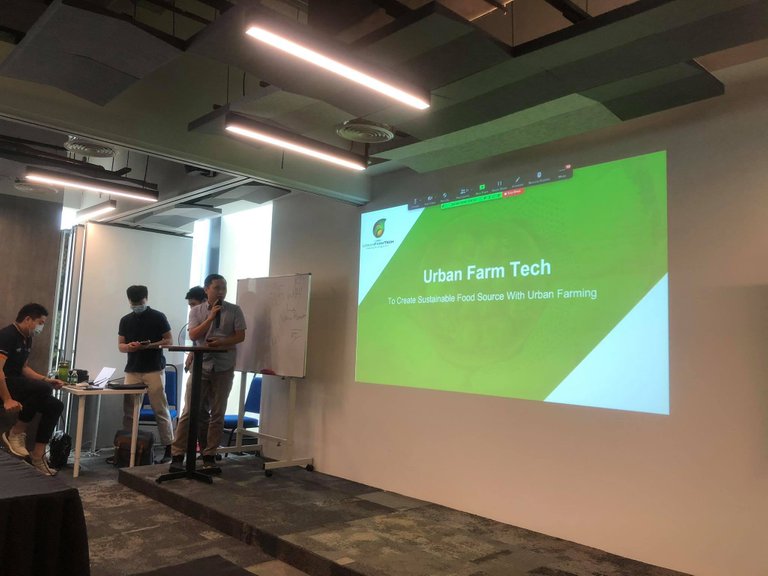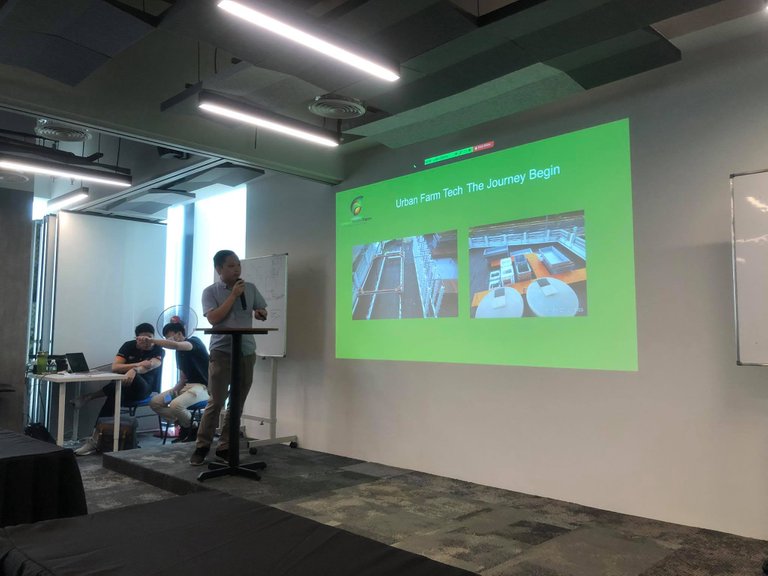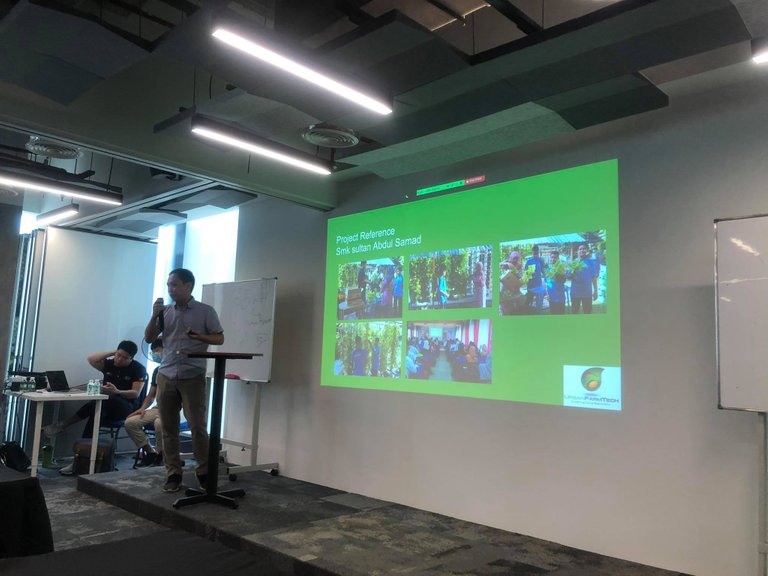The Green Space - Urban Farming

Being invited by the JCI community to share some insight into urban farming practice around Malaysia. It is interesting to spread knowledge and awareness about how urban farming could help elevate the food security level for the people and also improve the food safety level as well. Whenever we talk about urban farming, we may think of that high tech set up with multi-levels of plantation and equipped with the blue and red grow light. In truth, it is part of the spectrum and not the whole picture of it.


Here I want to just make a quick note about this presentation and jot down the concerns that were raised by the audience about the sharing. During the presentation, we highlighted these few points:
- Malaysia is over-dependent on imported food supply with over 60% of food were imported. Such ratio indicates a fragile food security system for Malaysia. Any change of policy in foreign countries like Thailand, Vietnam that contributed a large amount of export food supply to Malaysia will cause havoc in the country.
- The food supply chain in Malaysia is not robust enough to adapt to a pandemic situation. During the lockdown period, there was news of vegetable wastage by the Cameron highland farmers. The real reason behind is not because of intentional wastage but it is the demand drop from the businesses from the city as no F&B business were allowed to operate during the period. Therefore, with the order dropped or cancelled, the harvested vegetable has nowhere to go but have to be put to waste. It is said that such occasion has been misunderstood by the public and not many understood the flaw behind our current food supply chain.
- The perception of conventional farming with the soil-based method is still the way to go in Malaysia and people are sceptical about the water-based farming method like hydroponic and aquaponic. There are debates going on whether which system is better. However, this is not the way to understand the different methods available in farming. Each method is a complement and an alternative. It is not intended to fully replace one or another method. Unless we are living in a dessert and of course, only hydroponics and aquaponics are the two most efficient and feasible methods to use due to the climate.
- The average age of Malaysia's local farmer is around 58 years old as of 2018. What happens when 2030 when most of them are near to 70 and do they still capable to handle the farms? I doubt so and the productivity will surely drop. Then, it is important that we can create awareness and opportunity in the farming space for the young generation to participate. By introducing some tech-savvy solution in the farming industry like new IoT integration, farming drones, farming machinery, better genome crops and alternative methods of farming like urban farm can offer more choices for the young generations to be part of the industry.
- Collaboration with local schools creates a positive cycle whenever the school management especially the principal takes the lead in heading the initiative. School can drive the momentum by involving teachers and students in the urban farm project which could be part of the food source for the school. Other than that, the local authority also allocates certain funding to support the green initiative as such with quite a good number of grants. Like SMK Sultan Abdul Samad that we collaborated before and currently still had been receiving grants from the local authority an RM40k grant recently just to improve their urban farm initiative in their school.
- Linking urban farming to Sustainable Development Goals which is initiated by the United Nations. Under SDG, urban farming is able to cater to more than 8 goals that would help the community to prosper and become more resilient by the year 2030. Thus, urban farming could be one of the key initiatives that could be adopted by many CSR organization to implement into a different part of the region. In terms of social impact, it creates awareness for the public and the young ones about food, safety and also the value of appreciation. Whereas in an economical sense, it creates a small business within a small radius around the setup and allows people to be part of the healthy food supply chain.
Personally, I take my role as an advocate and promoter for urban farming. In my case, I am not actively involved in the farming process but more on the policy-making and promotion of the industry. In the near future, I would like to own a piece of the urban farming business which I see it as a sustainable and a resilient trend for the city living folks like me. I want my future self to be able to enjoy the fresh and healthy food produced right from the farm that I can be sure of the quality and accessible by the community as well. Knowing that urban farming is quite capital intensive, so I should be at least understand the economics and the process of how the business works before really dipping into it.

I will keep my eyes on this field and share my insight into the industry from time to time. This will also help those who are keen to be involved in the industry to get access to the information that can help them to make the right business decision. I would not want to see people take an overwhelming risk and fail in the urban farming business as I think it is a waste with so many resources out there ready to make justification for the business before we get our hands into it. Feel free to find me and have a chat to understand more about the local business of urban farming in Malaysia.
Thank you for your support. We will be working for a new payout scheme for you soon. Keep your chins up and stay tune!
At the moment, Urban farming will likely focus on vegetable and fruit industry farming can't farm in large quantities.
Small Bok choy selling for RM1.5~RM2 hard to make a profit with the urban farming technology. The 2nd thing is real estate. The rental itself will be the toughest to crack. Urban space is normally more expensive to rural.
I once wanted to start one but after some calculation, I decided not to start one.
I think this will only work if the government set aside some building or land within the urban area for urban farming.
Yes, you got the point! We feed on low margin vegetable which is not feasible to be planted with the vertical farming facility. However, there is some good case studies with operational business (heard that is is breaking even in 1 year) by being in the middle of the city and provides fresh salad supplies to the surrounding f&b and hotels outlets.
Will keep an eye here and if there’s any opportunity, will surely get into that 😆 as for me, I also see it to be quite costly to start in the city plus the rental of space. So it is also up to us to negotiate with the government in getting the unutilized space out for urban farming use. Since there is a tendency of vacancy tax going to be implemented, so such solution might be good for the developers.